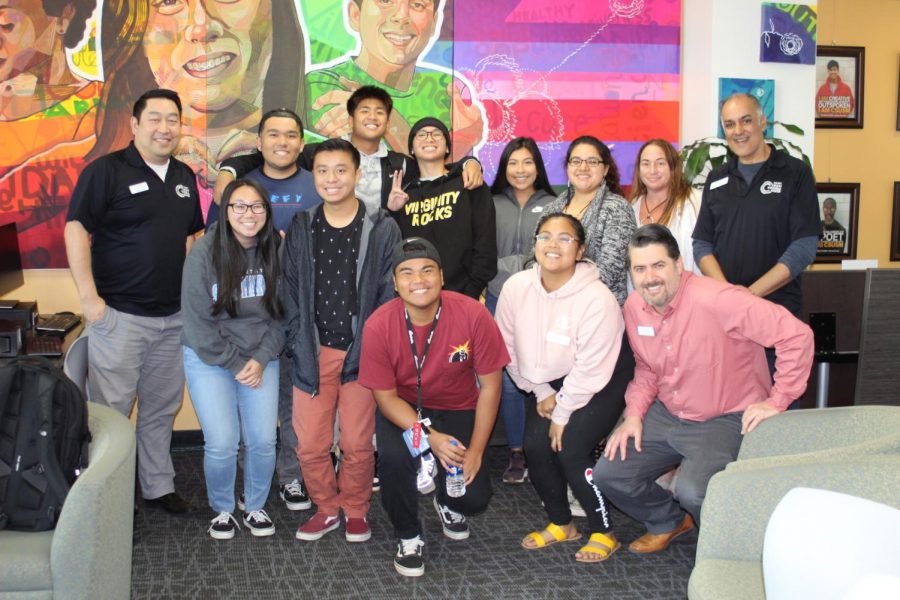Ideas and improvements discussed for the Cross-Cultural Center at community luncheon
Faculty and students gather in front of the Cross-Cultural Center mural for a photo.
Twelve students attended the Cross-Cultural Center Community Luncheon at the Cross-Cultural Center (CCC) to discuss current events on campus, cultures that need more campus recognition and ways to enhance the outreach of the CCC.
Faculty of the CCC gathers students for a luncheon twice a semester to discuss ideas and improvements in a continuous effort to improve not only their organization but the inclusiveness and community of CSUSM as a whole.
Floyd Lai, Director of the CCC, led the discussion by first introducing all faculty and having attendees go around in a circle to introduce themselves as well. Many people who attended were representatives of other cultural organizations such as the American Indian Student Association and the Vietnamese Student Association.
When discussing the purpose of the meeting, Lai said that he encourages members from all organizations to attend because the goal is to find a way to build more of a community at CSUSM.
The meeting consisted of an interactive discussion on how inclusivity could be expanded for the spring semester.
Tony Chahal, the CCC Program Specialist, said “It’s all about inclusion really, how can we include more people?”
It was proposed to create an event that honors the National Day of Awareness for Missing and Murdered Indigenous Women on May 5th, as well as the 50th Anniversary of the Occupation of Alcatraz.
Kathy Ha, the president of the Vietnamese Student Association, also proposed an event that acknowledges Asian identity and the struggle some students have to adapt to both the culture that is promoted at home versus at school.
Towards the end of the meeting, Lai asked the students how the CCC is portrayed across campus and whether or not there is a misconception that Asian cultures are predominantly represented within the center. This misconception comes from the fact that CSUSM has no Asian specific center, so the CCC has adopted Asian cultures through the program “Defining Diaspora”, yet it still represents everyone.
As students began to voice their opinions about the CCC, Jeron Smith, a first-year student, said, “you can see people you relate to and you can feel at home in the center.”
The CCC consists of four main programs: Critical Cougars, Defining Diaspora, the Activist Lab and Tukwut Talks. Each program strives to engage dialogue, create social change and encourage acceptance and understanding of all cultures.
For more information on the Cross-Cultural Center, visit their Instagram @csusm_ccc, their website, https://www.csusm.edu/ccc/index.html or email the center at [email protected].


